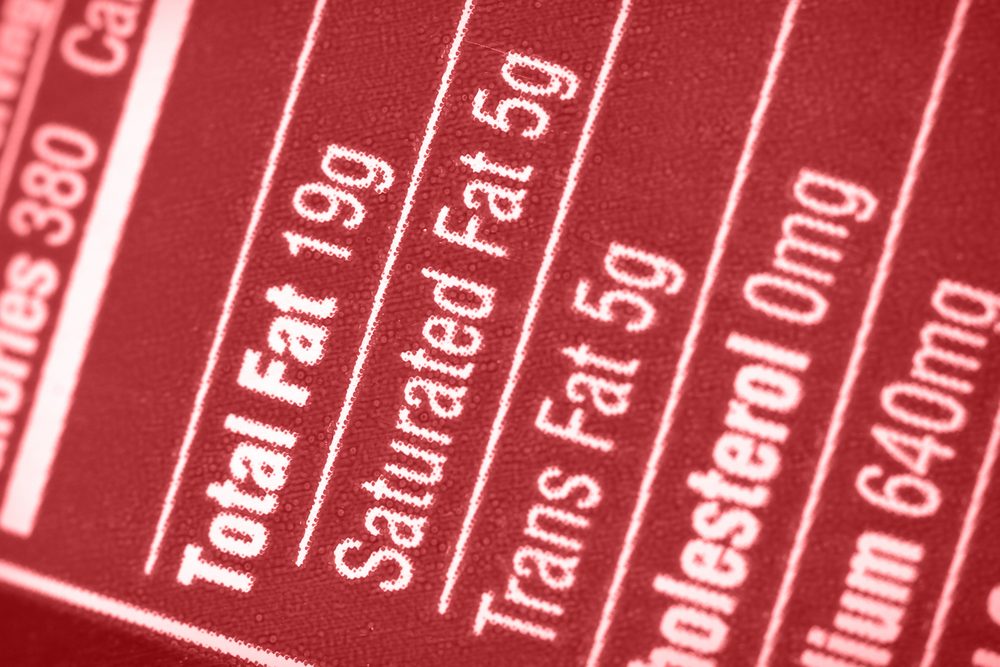Not all kinds of fats take a toll on your health. Read this article to find out why saturated fat may truly be good for your health and learn about healthy fats you needn’t think before snacking on. For years, fat was considered to be an evil and we were urged to drive it out from our diets whenever possible. We opted for low-fat foods. But this shift didn’t make us healthier, perhaps because we cut back on healthy fats along with harmful ones.
Your body requires some fat uptake from food as it’s a major source of energy. Fat assists in absorption of some vitamins and minerals. It builds cell membranes and the sheaths surrounding nerves. It is crucial for blood clotting, muscle movement, and inflammation. For lasting health, some fats are better than others. Monounsaturated and polyunsaturated fats fall into the category of good fats whereas industrial-made trans fats are counted as bad fats. Saturated fats fall somewhere in the middle.
Bad fats: Trans fat which is the worst type of dietary fat, is a result of a process called hydrogenation. This process is used to convert healthy oils into solids and to keep them from becoming rancid. A chemical reaction of vegetable oil and hydrogen in the presence of a heavy-metal catalyst such as palladium, results into the addition of hydrogen atoms to the carbon chain. This solidifies oils. It also makes healthy vegetable oils more like not-so-healthy saturated fats.
You can find trans fat almost in everything from commercial cookies and pastries to French fries. Eating foods well-off with trans fats increases the amount of harmful LDL cholesterol in your bloodstream and reduces the amount of useful HDL cholesterol. Trans fats cause inflammation, which may lead to heart disease, stroke, diabetes, and other chronic conditions. They promote insulin resistance, which increases your risk of developing type 2 diabetes.
Also Read: How to Lose Belly Fat- To Avoid Serious Health Risks
In-between fats: Saturated fats are solid at room temperature. Coconut oil, whole milk and other whole-milk dairy foods, cheese, red meat, and many commercially prepared baked goods are the common sources of saturated fats.
The word “saturated” here refers to the number of hydrogen atoms linked to each carbon atom. The chain of carbon atoms contains as many hydrogen atoms as it can which means it’s saturated with hydrogens.

A diet rich in saturated fats can lead to an increase in the total cholesterol levels and tilt the balance towards more harmful LDL cholesterol which promotes the formation of blockages in arteries in the heart and other parts of the body. Therefore, it is recommended by most nutrition experts to limit the intake of saturated fats to less than 10% of calories a day.
Some studies conclude that saturated fat increases your risk of heart diseases, but replacing saturated fat with good fats such as polyunsaturated fat (found in vegetable oils or high-fiber carbohydrates) may certainly reduce your risk of heart diseases.
Good fats: Good fats can be obtained from vegetables, nuts, seeds, and fish. The fact that they have fewer hydrogen atoms bonded to their carbon chains, makes them different from saturated fats. Healthy fats are liquid at room temperature, not solid. There are two broad categories of good fats: monounsaturated and polyunsaturated fats.
Monounsaturated fats: Monounsaturated fats comprise of a single carbon-to-carbon double bond. Thus, it has two hydrogen atoms less than a saturated fat and a bend at the double bond. This structure keeps monounsaturated fats liquid at room temperature.
Sources rich in monounsaturated fats are olive oil, canola oil, peanut oil, avocados, and most nuts, as well as sunflower oils and high-oleic safflower.
Also Read: Home remedies to lose belly fat
Polyunsaturated fats: Polyunsaturated fats are essential fats, commonly found in corn oil, safflower oil and, sunflower oil. They’re required for normal body functions but your body is unable to make them. So you must get them from good fat foods. Polyunsaturated fats are essential in building cell membranes and the sheaths of nerves. They aid in muscle movement, blood clotting and inflammation.
A polyunsaturated fat comprises of two or more double bonds in its carbon chain. There are two main categories of polyunsaturated fats: omega-3 fatty acids and omega-6 fatty acids. The numbers 3 and 6 refer to the distance between the beginning of the carbon chain and the first double bond. Both categories offer health benefits.
Foods rich in omega-3 fatty acids include fatty fish such as walnuts, flaxseeds, salmon, sardines, mackerel, canola oil, and unhydrogenated soybean oil.
Omega-3 fatty acids are healthy for your heart. In addition to reducing blood pressure, raising HDL, and lowering triglycerides, polyunsaturated fats may help in the prevention of lethal heart rhythms.
Omega-6 fatty acids offer protection to your heart and are commonly found in vegetable oils such as sunflower, safflower, soybean, walnut, and corn oils.
Conclusion: Not all kinds of fats harm your health. Out of the three categories of fats, trans fats are don’t render any health benefits and should be avoided whereas, unsaturated fats are good fats. Saturated fats fall somewhere in the middle of the two.



